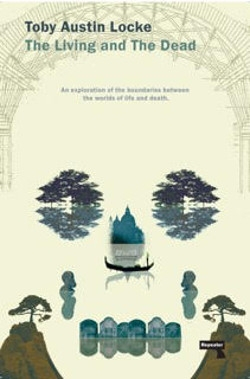The Living and the Dead
The Living and the Dead is a challenging and intriguing counterpoint to the modern embrace of the static and the tangible.
Toby Austin Locke’s The Living and the Dead ventures into the nebulous interconnectedness of life and death in an astute and bold way.
Eschewing modern tendencies toward cold rationalism and hard science, Locke takes a romantic and surrealist tack to present a view of death that is open to the possibility of something beyond an annihilation. Though the concept of the enduring soul is extensively discussed, Locke does not affirm monotheistic notions of death as mere passage into other forms of life, whether they be eternal bliss or damnation.
Here, the line between life and death is far more blurred, with the living acting upon the dead, just as the dead act upon the living. The work presents interesting notions, such as that the dead dissolve into the earth and return as fossil fuels. Drawing on philosophers from Aristotle to Bataille, Locke presents his particular visions of life and death with skill.
The book is intelligently constructed. The writing style is dense and seems intended for avid students of philosophy, rather than casual audiences. The explorations are impactful. In a way, the style of the book emulates the mysterious call of the dead, and a discerning ear is required in order to fully grasp it.
Stepping out of the realm of the speculative, Locke also examines the political and economic implications of how we perceive life and death. Capitalist realism, he argues, with its laser-focus on the “world of things” and rampant materialism, inherently embraces the notion of death as the ultimate end of life, what is called the finalist-death. A Marxist perspective is heavily employed to provide a provocative thought experiment, even for those married to capitalism as the ideal economic system.
Deeply intellectual, The Living and the Dead is a challenging and intriguing counterpoint to the modern embrace of the static and the tangible.
Reviewed by
Meagan Logsdon
Disclosure: This article is not an endorsement, but a review. The publisher of this book provided free copies of the book to have their book reviewed by a professional reviewer. No fee was paid by the publisher for this review. Foreword Reviews only recommends books that we love. Foreword Magazine, Inc. is disclosing this in accordance with the Federal Trade Commission’s 16 CFR, Part 255.

